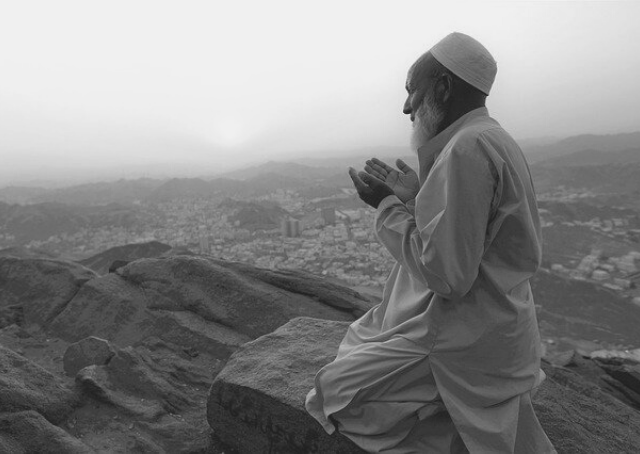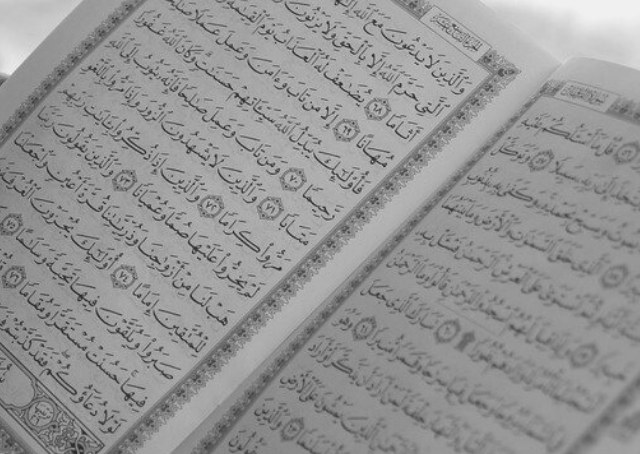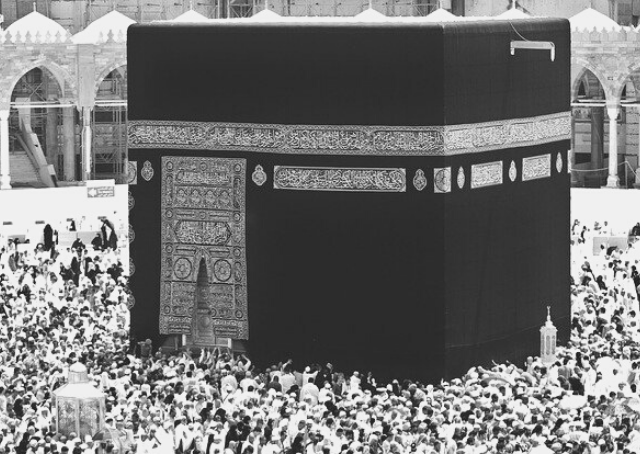The Companions of the Prophet Muhammad (Ashab or Sahaba)
In Islam, the Companions of the Prophet (Ashab or Sahaba in Arabic) were disciples of Muhammad. They were the people who had physical contact with the Prophet, regardless of how minor. Any follower of Islam who lived in the Prophet’s time and laid eyes on him can be considered a companion.
The Sahaba of the Prophet held in the greatest regard among Muslims of the Sunni faith are the first four caliphs. They were part of a larger group of ten Companions of Muhammad, to whom he promised paradise.
Others considered Companions of Prophet Muhammad are:
The Muhajirun: his followers in the Prophet’s migration from Mecca to Medina to escape persecution (the Hijrah)
The Badriyyun: the ones who did battle at Badr
The Ansar: Medinese believers
History tells us who was part of which group.
Being eyewitnesses, the Companions are the principal sources of Hadith, an official account of Muhammad’s doings and sayings. Shi’i Muslims are more critical than their Sunni counterparts towards the stories of the Sahaba. They hold some of them accountable for the defeat of the caliphate by Ahl al-Bayt.
So, Who Were the Companions of the Prophet?
The Prophet had hundreds of followers, including his wives and family members. This article deals with his ten Blessed Companions.
They were:
1. Hazrat Abu Bakr as-Siddiq
Hazrat Abu Bakr was a longtime friend of the Holy Prophet. He was first to adopt Islam at the Prophet’s invitation and was with him when he journeyed to Medina. The Prophet appointed him to direct the Namaz (Islamic prayers) – a real honor. The Prophet gave him the title As-Siddiq, which means Testifier to the Truth.
Abu Bakar was the first Muslim caliph after the death of the Prophet Muhammad. He had many outstanding achievements. For example, he was the first to compile the Holy Quran officially.
2. Hazrat Umar ibn al-Khattab
Hazrat Umar succeeded Hazrat Abu Bakar to become the second Muslim caliph. Hailing from Quraish, from the tribe of Banu Adi, he was one of the most famous Muslim caliphs known to history. Hazrat Umar was an opponent of Islam in his early years but became a convert. He fought in many battles after his conversion, most notably the Battle of Badr.
Hazrat Umar started a system of social security under which even infants benefited. It also covered non-Muslims.
Before he died, Hazrat Umar formed a selection committee. This committee comprised six of the other Blessed Companions of the Prophet Muhammad. He requested that they select his successor to the caliphate, and they nominated Hazrat Uthman.
3. Hazrat Uthman ibn Affan
Hazrat Uthman was the third caliph. He wed two of the daughters of the Prophet. For that reason, the people called him Zunnoorain (the one with two lights). His family was wealthy, and he bought a well. Although he paid a lot of money for that well, he made the water available to ordinary people.
Hazrat Uthman made two journeys with the Prophet: the first to Abyssinia and the second to Medina. He became famous for being a respectable man, and the Prophet said, “even the angels regard his decency.” He, too, compiled the Quran. He prepared official Quranic texts and sent them to various Islamic places.
Another action of Uthman was the creation of a Muslim Navy. He became a martyr right inside his house while reciting passages from the holy book.
4. Hazrat Ali ibn Ali Talib
The very first child to embrace Islam was Hazrat Ali. During his childhood, his guardian was the Prophet. Only Ali believed his message when he first called people to Islam and Allah.
Hazrat Ali fought in several battles in Medina, including the Battle of Badr. He conquered the Fort of Khyber during the Battle of Khyber. There he killed the Jewish commander, known as the Marhab.
Hazrat Ali was a leading advisor to all of the three previous caliphs. The Holy Prophet selected him to be a Qazi (justice) due to his knowledge and assigned him to Yemen. He was only 20 at the time.
He became the fourth Muslim caliph. He became a martyr while about to lead others in the Fajar prayer. In the months following Hazrat Ali’s death, Hazrat Hassan served as caliph.
5. Hazrat Abu Ubaida bin Jarrah
This Hazrat was very close to the Prophet. This closeness prompted the Prophet to say, “In every nation, there is a many worthy of all the trusts, and the trustworthy of this nation is Abu Ubaida bin Jarrah.”
Bin Jarrah became a Muslim under the guidance of Hazrat Abu Bakr. He was part of the migration to Abyssinia. After the second migration, he participated in various battles with the Prophet Muhammad. These battles included Badr and Uhud. He is well known for his bravery in the latter. He eventually became the Muslim army commander.
6. Hazrat Abdur Rahman bin Auf
Bin Auf also came from a wealthy family. Hazrat Abu Bakr led him to accept Islam. Hazrat Abdur Rahman is one of the Companions of the Prophet who adopted Islam early on.
Bin Auf was very rich and famed for his benevolence. After his death, his heirs inherited silver and gold bricks. They also got one hundred horses and one thousand camels.
Bin Auf was close to the Prophet and Hazrat Umar. Remember that six-person committee from the ten Companions of Muhammad? Hazrat Umar had formed the committee to elect the next caliph. He then asked the committee to follow whatever decision bin Auf supported.
7. Hazrat Saad bin Abi Waqas
Hazrat Saad was a member of the Prophet’s family. Like bin Auf, he accepted Islam at an early stage.
Saad fought in the battles of Uhud and Badr and commanded the Iraqi Muslim Army. He was the last of the Blessed Companions of Prophet Muhammad to die – he passed on near Medina at age 80.
8. Hazrat Talha bin Ubaid Ullah
Like many of the other Sahaba of the Prophet, Hazrat Talha’s family was very wealthy. He, too, was famous for his benevolence. Sometimes he gave as many as 400,000 Dirhams in charity in one day. He also was a member of Hazrat Umar’s committee to select a new caliph.
Hazrat Talha accepted Islam at the prompting of Hazrat Abu Bakr. His tribe tortured him after he accepted Islam. They also tortured Abu Bakar. The Prophet once said, if you want to see a martyr walking on earth, you should look at Talha.
Hazrat Talha opened his home to others. He took in new converts, some of whom lived with him until their deaths. He was an ever-smiling, friendly personality by nature. He was polite and softhearted in all his dealings with people.
He fought in many battles with the Prophet. The most notable was the Battle of Uhud, where he became injured.
9. Hazrat Zubar bin Al-Awam
Hazrat Zubar was one of the six committee members formed by Hazrat Umar to select a new caliph. He also came from a wealthy family and was a charitable person.
Muhammad and his friends made two migrations. The first was toward Abyssinia and the second toward Medina. He gained two brothers: Hazrat Abdullah bin Masood in Mecca and Hazrat Salma bin Salama in Medina when the Prophet instituted brotherhood between Ansaar and Muhajireen.
Bin Al-Awam was courageous since childhood. He was martyred at the Battle of Jamal when an enemy pursued him and attacked him during Namaz.
10. Hazrat Saeed bin Zaid
Hazrat Saeed was Hazrat Umar’s brother-in-law. He had adopted Islam earlier than Hazrat Umar. He once said that Hazrat Umar had tortured him to forsake the religion, but he had refused. One day, Hazrat Umar went to his home and heard some verses of the Quran, which led to his conversion.
Bin Zaid fought in various battles. He couldn’t participate in the Battle of Badr as he performed a task assigned by the Prophet outside of Medina. The Badar fight had already started by the time he returned to Medina. Prophet Muhammad later declared that bin Zaid was like one who fought in that infamous battle.
Conclusion
Muhammad and his friends formed a tight bond, which allowed the growth of Islam. Of the inner circle of the ten followers of the Prophet, Hazrat Abu Bakar seems to have been closest to him. The Prophet spoke of Abu Bakar as his “brother and companion.”
The Prophet Muhammad leaned on his companions to deliver the message of Islam. Even now, Muslims must follow the teachings of the Sahaba of the Prophet. They must do so in matters of faith, belief, manners of worship, and other issues. The Sahaba are second only to the Prophet in the purity of their hearts. That is why Allah made them the companions of Muhammad.













